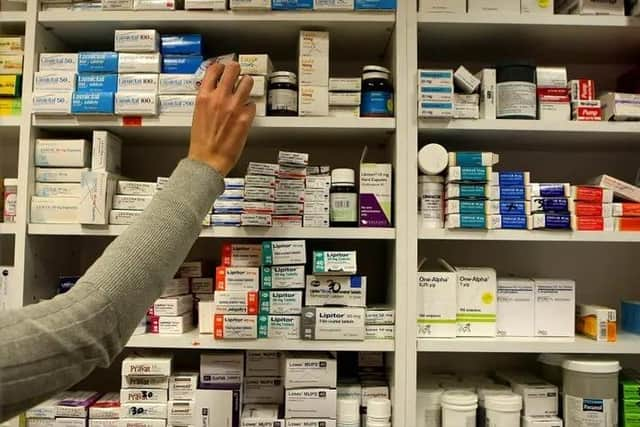Antidepressant prescriptions on the rise in Nottinghamshire
and live on Freeview channel 276
Mental health charity Mind has suggested an increase in the number of prescriptions across England could be a sign of worsening mental health across the country.
Figures from the Open Prescribing Service show 1,598,201 prescriptions for antidepressants were given out in the NHS Nottinghamshire clinical commissioning group area in the year to March – a monthly average of 120 prescriptions per 1,000 patients.
Advertisement
Hide AdAdvertisement
Hide AdThis was an increase of 5 per cent from the year before, when an average of 114.3 were given per 1,000 patients, and an increase of 10 per cent from 2019-20.


Antidepressants are commonly prescribed to improve mental health, but may also be taken for conditions not directly related to this, such as certain types of long-term pain.
However, the story is similar for ‘selective serotonin re-uptake inhibitors’, the most commonly prescribed antidepressants for mental health conditions in England.
These are thought to increase the level of serotonin in the brain and are often used to treat depression and anxiety.
Advertisement
Hide AdAdvertisement
Hide AdSSRI prescriptions increased from a monthly average of 58.9 per 1,000 patients in Nottinghamshire in the year to March 2020 to 64.6 in 2022 – a rise of 10 per cent.
In Nottinghamshire, SSRIs were prescribed 859,957 times last year – equating to 71,663 a month.
These figures are for the number of times medication has appeared on prescriptions, but do not show the quantity of medication given, and multiple prescriptions can be given to the same patient.
Mind says the pandemic may have caused a spike in conditions such as depression, but many of those suffering were reluctant to seek help at the time.
Advertisement
Hide AdAdvertisement
Hide AdStephen Buckley, Mind head of information, said: “The increase in prescriptions could indicate the prevalence of poor mental health is likely to have increased, which seems likely, and echoes our own research."
Across England, antidepressants appeared on 83 million prescriptions in the year to March, 45m of which were for SSRIs, an increase from 79m and 43m respectively the year before.
Mr Buckley says the increase could be the product of more people coming forward for treatment.
“The rise in antidepressant prescriptions dispensed could also reflect a wider shift in social attitudes, as stigma surrounding mental health decreases, and awareness and understanding improves,” he added.
Advertisement
Hide AdAdvertisement
Hide AdAcross England some 8.3m patients received an antidepressant drug in 2021-22 – a 6 per cent rise on 7.9m the previous year.
They include 11,878 children aged 10-14, and 180,455 young people aged 15-19.
Separate research published in the Lancet scientific journal last April suggests, while antidepressant prescribing has risen during the pandemic, it is consistent with increases in preceding years and should be seen as part of a longer-term trend.
An NHS England spokesman said: “We know the pandemic has taken a toll on the nation’s mental health, with record numbers of people coming forward for mental health care and NHS staff are working hard to meet this demand.
Advertisement
Hide AdAdvertisement
Hide Ad“Decisions about the best treatment options are made by clinicians jointly with their patients and medication can be effective when used alongside psychological therapies such as talking therapy.
"It’s vital people continue to come forward for any support they may need.”
